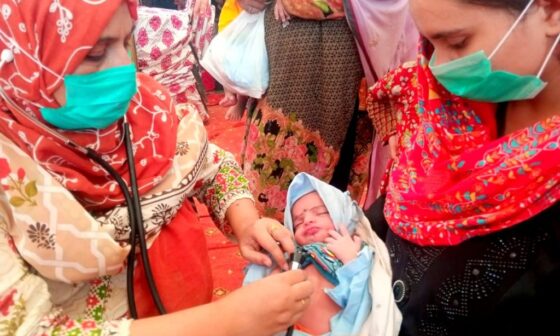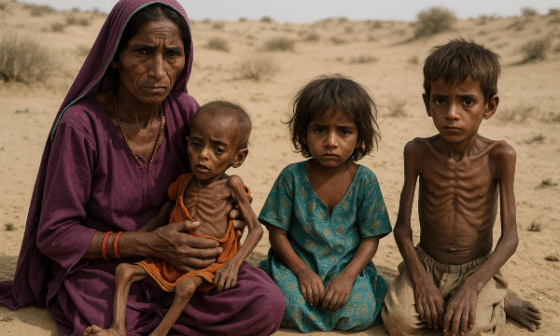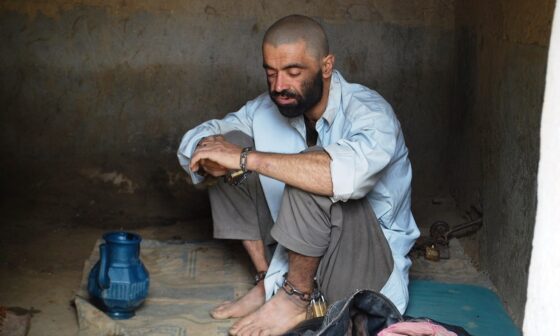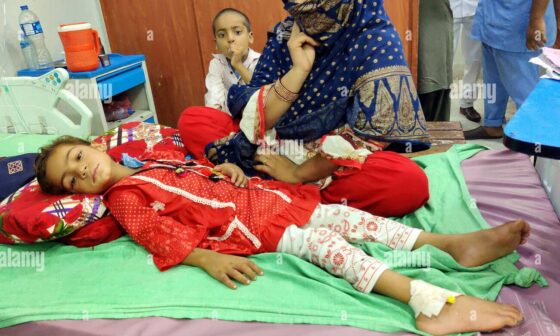In the evolving landscape of healthcare innovation in Pakistan, prosthetics startups are transforming lives by addressing a critical gap—accessible and affordable artificial limbs for people with disabilities, particularly children. Among these pioneers is Bioniks, a Karachi-based startup that has emerged as a beacon of hope. Traditional prosthetics are not only costly but also inaccessible to many children in Pakistan, especially those from underserved communities. The need for functional, affordable, and child-friendly prosthetics is substantial. Bioniks, co-founded by engineers Usman Iqbal and Azeem Saeed, utilizes 3D printing technology to create personalized, low-cost prosthetic limbs, offering children more than just mobility—offering them independence, confidence, and a shot at normal childhood activities. The startup aligns engineering ingenuity with humanitarian vision, filling a longstanding void in pediatric prosthetics within Pakistan.

A particularly moving case that illustrates Bioniks’ impact is that of five-year-old Muhammad Abdullah from Rawalpindi. Born without a right arm below the elbow, Abdullah faced difficulties in writing, eating, and playing with his peers. His family, unable to afford imported prosthetic limbs, felt hopeless. In early 2021, they came across a news report featuring Bioniks. After reaching out to the organization, Abdullah was fitted with a colorful, superhero-themed 3D-printed prosthetic that was both functional and emotionally empowering. The device allowed him to hold objects, grip pens, and participate in daily activities with newfound enthusiasm. Abdullah’s transformation was not just physical but psychological. He became more confident at school and actively engaged with other children, something that had once seemed impossible. His story became a viral sensation on social media and helped Bioniks gain national recognition.
The startup’s success lies in its interdisciplinary approach. Bioniks blends robotics, biomechanics, and digital design to create lightweight and durable limbs tailored to each user. The team uses open-source hardware and software, significantly reducing production costs and enabling rapid customization. Most importantly, the company operates with a strong social mission—many of their devices are provided at little or no cost to low-income families. The startup collaborates with hospitals, non-profit organizations, and educational institutions to identify beneficiaries. Beyond limb creation, Bioniks also offers rehabilitation sessions and psychological support for children and their families, ensuring a holistic recovery. This comprehensive model distinguishes them from conventional prosthetic providers and emphasizes sustainability and emotional wellness.

From Karachi to Gaza: Pakistani startup ships prosthetics to child war survivors
Despite its commendable progress, Bioniks faces challenges common to startups in the healthcare technology space. Regulatory hurdles, lack of institutional funding, and limited public awareness hinder scalability. Moreover, producing pediatric prosthetics requires continual adaptation to a child’s growth, which means devices must be replaced or upgraded periodically. This dynamic demands ongoing donor support and strategic partnerships to ensure continuity of care. The company has responded by initiating educational workshops and crowdfunding campaigns to sustain their operations. Bioniks has also begun training local healthcare workers and engineers to expand their reach to rural areas. By decentralizing knowledge and production, they aim to make prosthetics more universally accessible across Pakistan.
The broader implications of Bioniks’ work touch on key social and developmental themes. Children with disabilities are often marginalized in educational and recreational spaces due to lack of physical access and societal bias. By providing them with tools to integrate and thrive, Bioniks is challenging stigma and transforming public perceptions of disability. Their use of child-friendly designs—prosthetics modeled after superheroes or favorite characters—makes these devices symbols of strength rather than limitation. These innovations contribute to building a more inclusive society and create pathways for children with disabilities to envision themselves in empowered roles. The ripple effects include better educational outcomes, higher self-esteem, and increased participation in community life.

Pakistani health-tech Bioniks has successfully fitted its first prosthetic limb in Gaza for a young girl injured in the ongoing genocidal…
The success of Bioniks offers a replicable model for health-tech innovation in developing countries. Its impact extends far beyond the individuals it serves directly. It inspires policymakers, entrepreneurs, and the healthcare sector to consider how technology can humanize medicine and restore dignity to those often left behind. As Muhammad Abdullah’s story exemplifies, a well-designed prosthetic can be more than a tool—it can be a catalyst for transformation. With the right investment, policy support, and continued innovation, startups like Bioniks can scale their efforts and revolutionize disability care in Pakistan. They stand as proof that compassion, when fused with technology, can redefine the future of healthcare accessibility for vulnerable populations.
References:
Dawn News. (2023). “Startups Bridging Gaps in Pediatric Healthcare.”
Bioniks Pakistan. (2023). Company Overview and Annual Report.
World Health Organization. (2023). Assistive Technology and Innovation in Low-Income Countries.
Express Tribune. (2022). “Bioniks: Revolutionizing Prosthetics for Pakistani Children.”
UNICEF Pakistan. (2023). Children with Disabilities: Needs and Services.
Journal of Prosthetics and Orthotics. (2023). “Affordable 3D Printed Prosthetics in Developing Nations.”
Ministry of National Health Services Pakistan. (2022). Disability and Assistive Devices Strategy.
Human Rights Watch. (2023). Inclusive Education and Disability in Pakistan.






